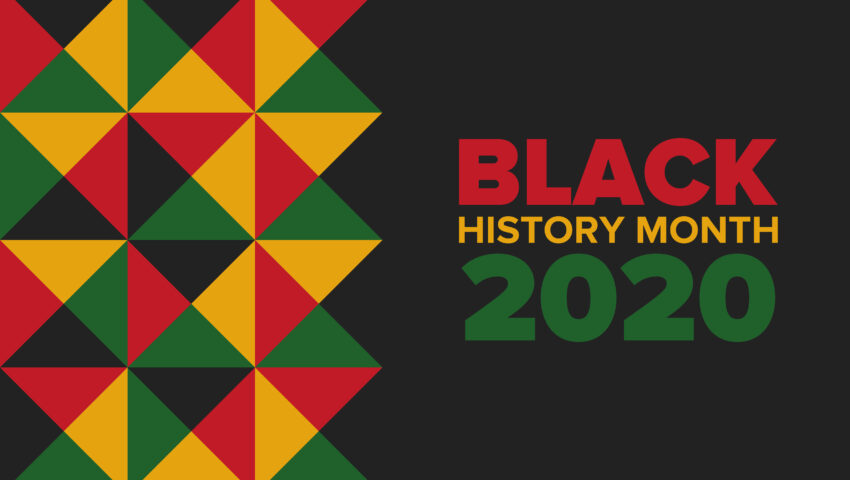Blogs
The Importance of Black History Month and the ripple effect of the BLM movement

As we come to the end of Black History Month (BHM) which is a yearly observance originating in the US and celebrated within Europe throughout October. It’s a time when we remember, celebrate and learn about black role models whilst understanding the historic events through time. Companies and governments often take this time to reflect how diverse and inclusive their workplaces and policies are, with a view to drive positive change to better the working environments for their black minority ethnic teams.
Regardless of where you are from – it’s a brilliant time to further learn and understand the past, present and planning just how we can continue to push the boundaries of positive change for the better!
Where did Black History Month stem from?
As described perfectly in this article from the BBC
Known as the “Father of Black History”, Carter G Woodson was born in Virginia in 1875 and was the son of former slaves. Growing up, access to a good education and job opportunities were limited, but he ended up studying at one of the few high schools for black students after saving money from working as a coal miner.
Over the years he gained an impressive number of qualifications, including a PhD in history from Harvard University. In 1926 he sent out a press release to mark the first Black History Week in the US. Throughout his life, Carter G Woodson worked tirelessly to promote black history in schools, leaving an indelible legacy.
The event was expanded in 1970, and since 1976 every US president has officially designated February as Black History Month in the US.
February was chosen in the US because it coincides with the births of former President Abraham Lincoln and Frederick Douglass – who escaped slavery and became a key social activist. Both men played a significant role in helping to end slavery.
The event was intended to recognise the contribution and achievements of those with African or Caribbean heritage. It’s also an opportunity for people to learn more about the effects of racism and how to challenge negative stereotypes.
When Black History Month first started in the UK, there was a big focus on black American history. Over time there has been more attention on black British history.
The powerful ripple effect of the recent BLM movement…
Since the death of George Floyd earlier this year, many people across the US and within many other countries, including the UK, protested for better rights and an end to racial inequality.
In the UK, the lens that once obscured the problems of systemic racism has been lifted. British history is also black history, but this history has been suppressed, hidden and perhaps oversimplified due to the historic undercurrent of racism that is subtly seen today.
From this ripple effect, the protests were not the only changes that were seen. Statues across the UK were taken down and many conversations amongst groups that wouldn’t usually discuss the impact that black and minority ethnics took place. News articles were released and programmes were aired talking about the UK’s culture.
I was particularly interested in “Stephen Lawrence: Has Britain Changed?” programme aired on ITV with Rageh Omaar and Anushka Asthana presenting along with an incredible panel of high-profile backgrounds, examining how equal the UK really is and what needs to change.
It was such an eye opener for me, especially as the British often look at other countries such America when they think of racism. A recent survey was presented showing how different groups of people viewed the culture of racism across different sectors. What astonished me is that black people across the UK felt that the Police (77%) and companies (65%) were the top areas where racism existed culturally. This means so much more needs to be done to change this for the better.
A positive element to come out of this – is that others want to drive change which wasn’t as strong before as this wasn’t a talked about subject. The more I learn, the more I want to drive change which I know is the same message that I discuss with my friends across the world, with actions coming out of proactive discussions with race and ethnicity being at the epicentre.
What are we doing within bm?
Within bartlett mitchell, we take D&I very seriously from our HR practices to training for our teams and an ethos that is enriched within our core values. During the month of October 2020, we publicly announced a series of measures aimed at strengthening our commitment to making our workplace a more diverse and inclusive place for all of our teams and customers.
We were really excited to sign the ‘Business In the Community Race at Work’ charter to coincide with Black History Month. This committed us to the values outlined in the charter offering a strategic framework for us to work to, offering tangible and measurable targets for improvement.
These range from appointing an executive sponsor for race, capturing ethnicity data and publicising progress, committing at Board level to a zero tolerance of harassment and bullying, having clear ownership of equality issues from all leaders and managers, and taking action that supports ethnic minority career progression.
As part of the commitment, we developed a four-year strategy which will be led by a ‘Diversity and Inclusion’ steering committee – with the aim of increasing D&I awareness across the business. The committee will ensure that a culturally diverse team provides food and service experiences reflecting many perspectives and world views. It will also ensure that the business will be carrying out a range of activities such as planning annual celebration days. Their remit includes reviewing relevant training, and recognising development needs.
Alongside this, and as part of Black History Month, we hosted themed dining menus, developed a series of D&I based blogs for team members, as well as recognising and sharing different cultural menus via Yapster – our internal communications platform.
Ian Thomas, CEO, bartlett mitchell, said: “As a business, we have always been proud of the incredibly diverse talent we have amongst our team and take time to share and recognise this wherever possible. However, with recent events in mind, we have taken the opportunity to review our activity and formalise a strategy which will be deeply embedded into our business. The BITC charter offers a strong framework to help us achieve this.”
Finishing words
Michelle Obama once said, “History has shown us that courage can be contagious and hope can take on a life of its own”
We need to be courageous and allow ourselves to be in a space of vulnerability to understand, and learn others’ challenges and perspectives. Some of the barriers to us doing this is that it is scary entering into a conversation with someone that you perhaps know little about (black culture or challenges as an example). It’s only when we do this, do we start to have a deeper knowledge of others life impacts and how we can champion as allies.
Continually I broaden my understanding of others’ challenges from a personal point of view. Through doing this – I learn more and more, just how much natural privilege I have which is simply through being a white man.
I encourage you to learn more and a great read from a brilliant role model is June Sarpong’s new book, The Power of Privilege: How white people can challenge racism. It’s a great read (or on audio if easier) – covering empowerment of others, gives deeper understanding around inequalities and gives practical steps and action driven solutions.
Acronyms:
BME – Black Minority Ethnics
BAME – Black Asian Minority Ethnics
BHM – Black History Month
BLM – Black Lives Matter
D&I – Diversity & Inclusion




